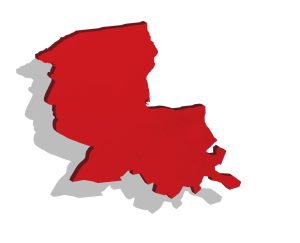Tulane ranks No. 39 among national colleges
September 14, 2016
For the fifth consecutive year, Tulane has risen in the U.S. News and World Report national college rankings for 2017, reaching No. 39 in its highest spot since 1999.
Tulane ties for the No. 39 spot with Boston University, Northeastern University, University of California-Irvine and Rensselaer Polytechnic Institute. Tulane rose two spots this year from No. 41 after rising a record 13 spots from 2015.
The A.B. Freeman School of Business was ranked as the 48th best undergraduate business program in the nation, and Tulane took the No. 23 spot for veteran-friendly colleges. U.S. News also recognized Tulane as one of 27 institutions with a strong focus on service learning.
President Michael Fitts said in a statement to The Hullabaloo that the rankings do not necessarily represent all of Tulane’s accomplishments.
“Recognition by others is always satisfying, but even more important is knowing that every day, we continue to improve the quality of our teaching, learning and research,” Fitts said. “I am most inspired by the dedication of our students, whose quest for new knowledge is addressing some of the most critical questions society faces, and by our faculty, who are educating the next generation of leaders.”
Tulane’s rank is lower than almost all of its peer institutions, including Vanderbilt University (15), Rice University (15), Washington University-St. Louis (19) and Emory University (20). Tulane only outranks the University of Miami, which came in at No. 44.
Tulane is the highest-ranked Louisiana university and the only one to make the top 100 on the national list. Louisiana State University came in at No. 135, and Louisiana Tech University took the No. 202 spot. Loyola University New Orleans tied for No. 10 on the southern regional college rankings.
U.S. News calculates the rankings using data submitted by universities and obtained from various educational organizations, including the Department of Education and the Council for Aid to Education. The rankings mainly take into account academic data, such as ACT and SAT scores, classroom size, selectivity and graduation and retention rates.
Tulane fares well in the rankings due to a small student-faculty ratio of 8:1 and a low acceptance rate of 31 percent. It has a low graduation rate of 72 percent, when compared to peer institutions. Vanderbilt’s graduation rate is 87 percent, Rice is at 80 percent and Emory is at 83 percent. Miami, which is overall ranked lower than Tulane, has a 68 percent graduation rate.
Other non-academic factors with small influences on the rankings include financial resources available to students and the amount of donations made by alumni.
The rankings, however, do not take certain factors into account, including diversity, campus safety, the amount of debt with which students graduate, medical resources and job prospects after graduation.









Leave a Comment